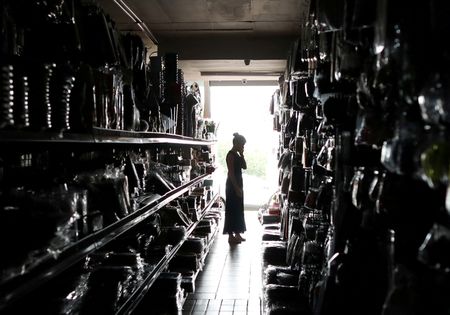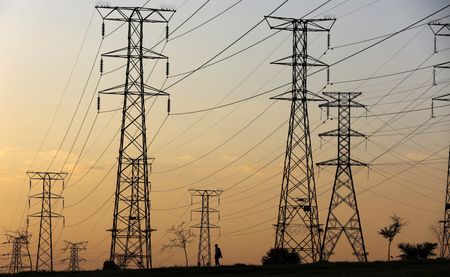By Nqobile Dludla
JOHANNESBURG (Reuters) – South African manufacturers and retailers of food and other essential products warned on Wednesday that consumers will face much higher prices unless the government urgently finds solutions to the power cuts that are crippling the economy.
Food, consumer goods companies and retailers in South Africa are cranking up diesel generators and spending more on back up power supplies, adding to the pressure from soaring costs for raw materials, transportation and packaging.
South African businesses and households are spending between six and ten hours a day without electricity as state-owned utility Eskom implements some of the harshest blackouts in living memory owing to breakdowns at its coal-fired power plants.
In an open letter to President Cyril Ramaphosa, the chief executives of member companies of the Consumer Goods Council of South Africa pleaded for urgent and decisive action from the government to solve the power crisis.
“While we have maintained our operations and supply chains so far by using emergency power generators, this has been at an unsustainable financial cost,” the council said in the letter, which was sent to local media.
“It is crippling our businesses, and will in the end mean much higher prices for consumers, who are already under severe financial strain.”
Last year, Ramaphosa promised to expand generation, slash red tape and buy surplus electricity from private producers.
He is expected to address the power crisis in his state of the nation address on Thursday.
The council, whose members include the country’s biggest supermarket group and food producer Shoprite and Tiger Brands, said if the crisis continues, businesses will not be able to guarantee stable supplies of food, medicines and other essential goods.
Shoprite has said its additional spend on diesel to operate generators amounted to 560 million rand ($32 million) in the six months to Jan.1.
Supermarket group Pick n Pay spent 346 million rand in the 10 months to Dec. 25 to run generators, and is currently spending about 60 million rand per month.
($1 = 17.5103 rand)
(Reporting by Nqobile Dludla; Editing by Olivia Kumwenda-Mtambo, Kirsten Donovan)


